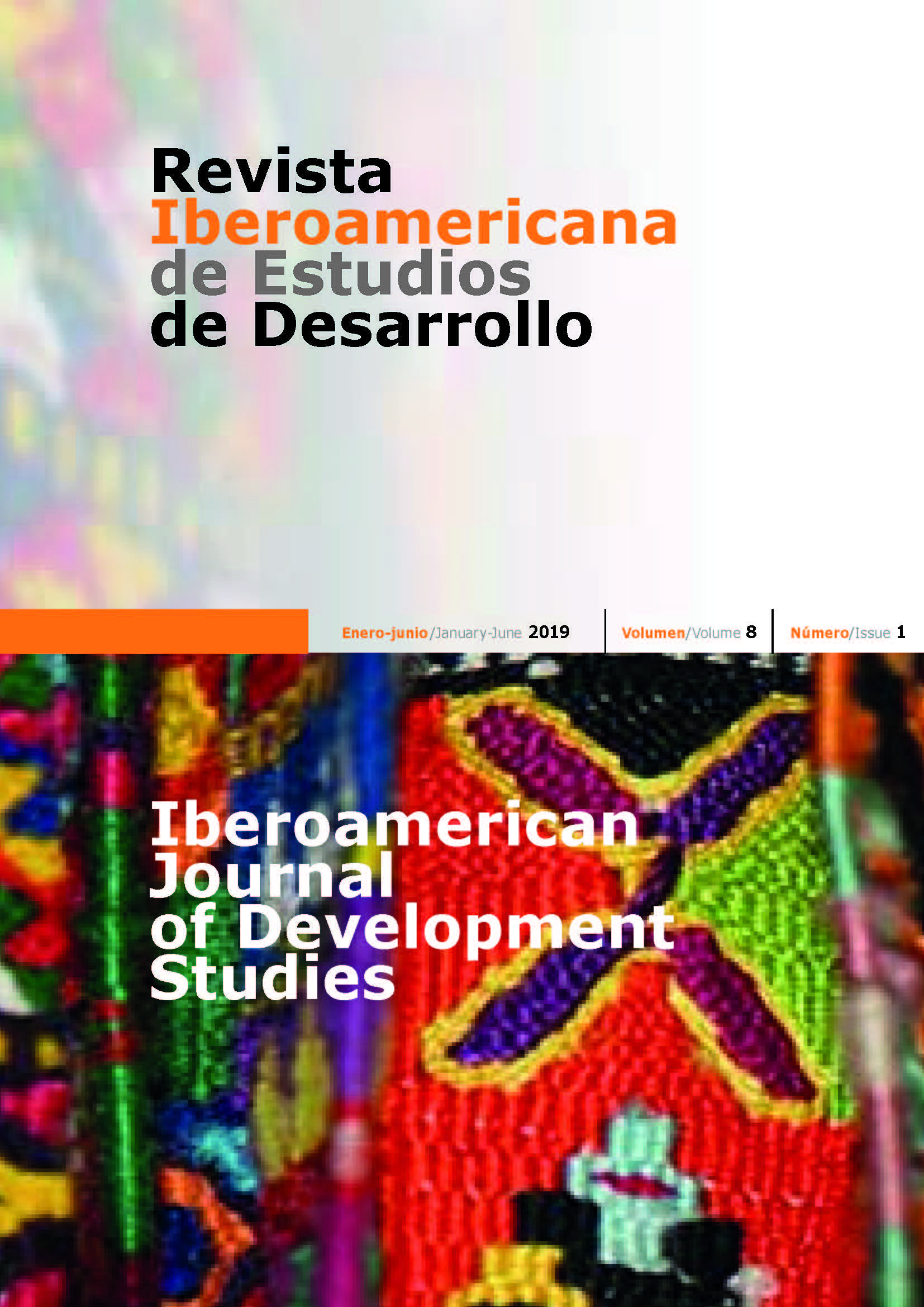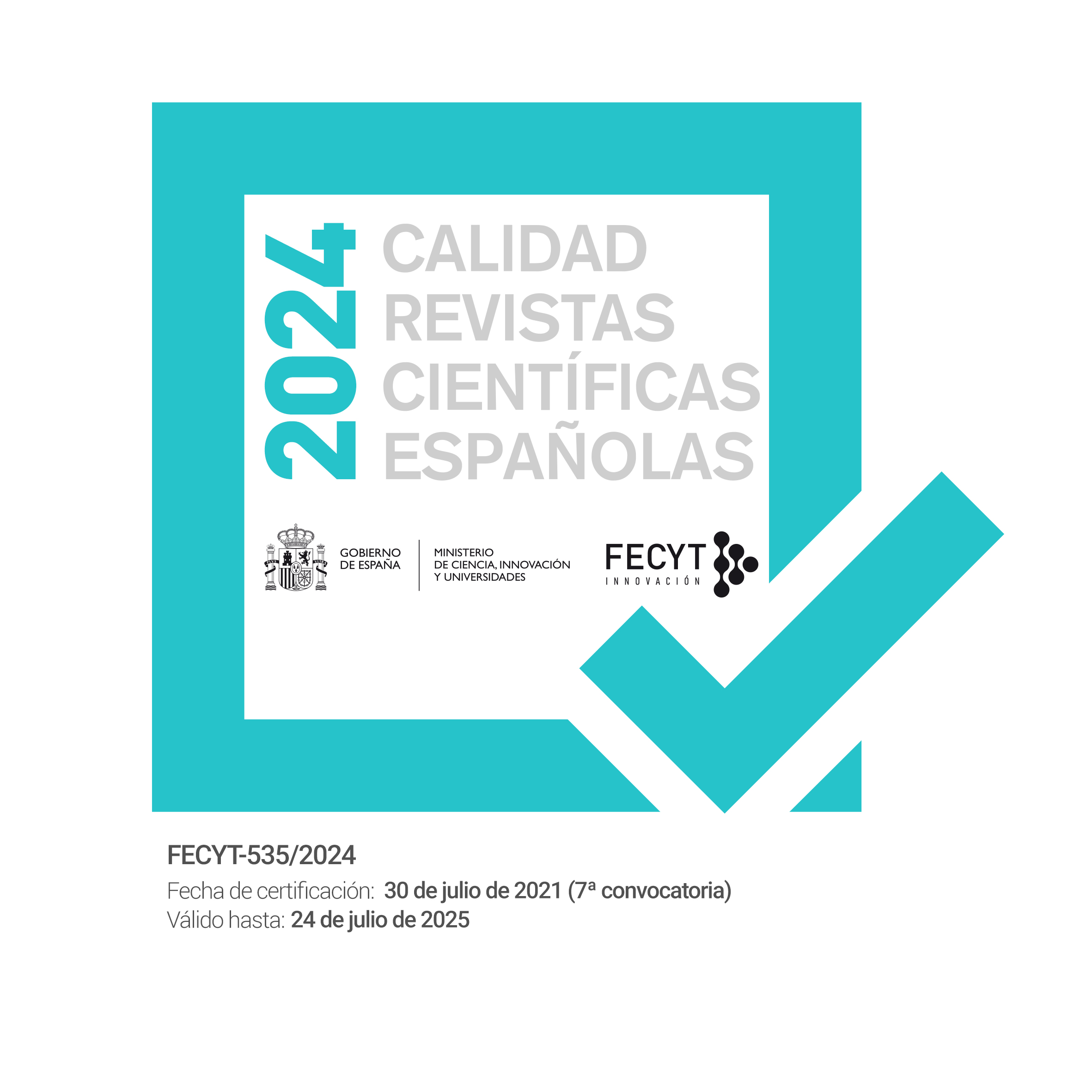Examining the role of environmental education to the construction of the global good living: contributions of critical environmental educations to objectives’ definition
DOI:
https://doi.org/10.26754/ojs_ried/ijds.336Keywords:
global good living, critical environmental education, pedagogyAbstract
In this paper, it is examined the role that environmental education plays in the development of global good living. Environmental education is introduced, its trajectory and evolution are reviewed in multiple currents, and the predominant one, education for sustainable development, is described, stressing on its implicit conceptions and shortcomings. Then, critical environmental education is presented, which spurns the uniformity of global capitalism and teaches the old and the new roots to our land and to the Earth, and a plural and diverse sense of collective and individual identity. We focus on its proposals in relation to ecologism, criticism, sustainability, interculturality, and participation. Afterwards, we reflect on some specific characteristics that the pedagogical proposal of critical environmental education should have for the construction of global good living. Finally, a good living goal is proposed.
Downloads
References
ACOSTA A (2010). El Buen Vivir en el camino del post-desarrollo. Una lectura desde la Constitución de Montecristi. Policy Paper 9(5):1-36.
BARTELMUS P (2013). The future we want: Green growth or sustainable development? Environmental Development 7:165-170. doi: https://doi.org/10.1016/j.envdev.2013.04.001, acceso 27 de diciembre de 2017.
BAUMAN Z (2001). El desafío ético de la globalización. Revista Colombiana de Sociología 6(2):95-99.
BONNETT M (1999). Education for Sustainable Development: a coherent philosophy for environmental education? Cambridge Journal of Education 29(3):313-324. doi: https://doi.org/10.1080/0305764990290302 , acceso 27 de diciembre de 2017.
BONNETT M (2002). Education for Sustainability as a Frame of Mind. Environmental Education Research 8(1):9-20. doi: https://doi.org/10.1080/13504620120109619, acceso 22 de diciembre de 2017.
CAPRA F (1998). La trama de la vida: Una nueva perspectiva de los sistemas vivos. Anagrama, Barcelona.
CARTER RL, SIMMONS B (2010). The History and Philosophy of Environmental Education. En: Bodzin A, Shiner Kein B, Weaver S (eds.). The Inclusion of Environmental Education in Science Teacher Education. Springer, Dordrecht, pp. 3-16. doi: https://doi.org/10.1007/978-90-481-9222-9_1, acceso 22 de diciembre de 2017.
CÓDIGO CIVIL (2005). Congreso Nacional, Comisión de Legislación y Codificación, Quito.
COFFIN C, O’HALLORAN K (2008). Researching argumentation in educational contexts: new directions, new methods. International Journal of Research & Method in Education 31(3):219-227. doi: https://doi.org/10.1080/17437270802416582, acceso 19 de enero de 2017.
CONSTITUCIÓN DE LA REPÚBLICA DEL ECUADOR [CRE] (2008). Asamblea Constituyente, Ciudad Alfaro.
CONSTITUCIÓN POLÍTICA DEL ESTADO [CPE] (2009). Gazeta Oficial de Bolivia, El Alto de La Paz.
CUBERO R (2005). Perspectivas constructivistas. La intersección entre el significado, la interacción y el discurso. Graó, Barcelona.
CURRY P (2011). Ecological Ethics. Polity, Cambridge.
DA COSTA-LIMA GF (2009). Educação ambiental crítica: do socioambientalismo às sociedades sustentáveis. Educação e Pesquisa 35(1):145-163.
DE CABO C (2010). Dialéctica del sujeto, dialéctica de la Constitución. Trotta, Madrid.
DE SOUSA-SANTOS B (2010). Refundación del Estado en América Latina: perspectivas de una epistemología del Sur. Abya-Yala, Quito.
DÍEZ-GUTIÉRREZ EJ (2010). Decrecimiento y educación. En: Taibo C (dir.). Decrecimientos. Sobre lo que hay que cambiar en la vida cotidiana. Catarata, Madrid, pp. 109-135.
DISINGER JF (1985). What research says: Environmental education’s definitional problem. School Science and Mathematics 85(1):59-68.
FERNÁNDEZ R Y GONZÁLEZ L (2014). En la espiral de la energía. Vol. 2. Ecologistas en Acción y Baladre, Madrid.
FREIRE P (2014). Pedagogía del Oprimido. Siglo XXI, México.
FROMM E (2014). El arte de amar. Paidós, Barcelona.
FUNDACIÓN GUAYASAMÍN (2017). Frases de Guayasamín. http://www.guayasamin.org/index.php/oswaldo-guayasamin/frases-de-oswaldo-guayasamin , acceso 13 de febrero de 2018.
GADOTTI M (2002). Pedagogía de la tierra. Siglo XXI, México.
GAMBINO A, DAVIS JM Y ROWNTREE NE (2009). Young children learning for the environment: Researching a forest adventure. Australian Journal of Environmental Education 25:83-94. doi: https://doi.org/10.1017/S0814062600000422, acceso 25 de enero de 2018.
GARCÍA JE, CANO MI (2006). ¿Cómo nos puede ayudar la perspectiva constructivista a construir conocimiento en Educación Ambiental? Revista Iberoamericana de Educación 41:117-131.
GIL D, VILCHES A (2006). Educación Ciudadana y Alfabetización científica: mitos y realidades. Revista Iberoamericana de Educación 42:31-53.
GIRAULT Y, SAUVE L (2008). L’éducation scientifique, l’éducation à l’environnement et l’éducation pour le développement durable. Aster 46:7-30.
GIROUX H (2003). La inocencia robada: Juventud, multinacionales y política cultural. Morata, Madrid.
GOLDSMITH E (1999). El Tao de la ecología: Una visión ecológica del mundo. Icaria, Barcelona.
GONZÁLEZ-GAUDIANO EJ (2001). Otra lectura a la historia de la educación ambiental en América Latina y el Caribe. Tópicos en Educación Ambiental 1(1):9-26.
GONZÁLEZ-GAUDIANO EJ (2008). Educación ambiental y educación para el desarrollo sustentable. ¿Tensión o transición? En: González Gaudiano EJ (coord.). Educación, medio ambiente y sustentabilidad. Universidad Autónoma de Nuevo León, Monterrey, pp. 9-24.
GONZÁLEZ-GAUDIANO EJ, ARIAS-ORTEGA MA (2009). La educación ambiental institucionalizada: actos fallidos y horizontes de posibilidad. Perfiles educativos 31(124):58-68.
GUDYNAS E (2009). El mandato ecológico. Derechos de la Naturaleza y políticas ambientales en la nueva Constitución. Abya Yala, Quito.
GUDYNAS E, ACOSTA A (2008). El buen vivir o la disolución de la idea del progreso. En: Rojas M (coord.). La Medición del Progreso y del Bienestar. Propuestas desde América Latina. Foro Consultivo Científico y Tecnológico, México, pp. 103-110.
GUTIÉRREZ F, PRADO C (2000). Ecopedagogía y ciudadanía planetaria. CREC, Xàtiva.
HABERMAS J (2016). ¿Es posible una constitución política para la sociedad mundial pluralista? Anales de la Cátedra Francisco Suárez 50:303-315.
HERNÁNDEZ DÍAZ JM (coord.), HERNÁNDEZ HUERTA JL (ed.) (2014). Historia y Presente de la Educación Ambiental. Ensayos con perfil iberoamericano. FahrenHouse, Salamanca.
HERRÁN A (2015). Pedagogía radical e inclusiva y educación para la muerte. FahrenHouse, Salamanca.
HUCKLE J (1999). Beware Systems without Dialectics. The Development Education Journal 5(3):28-29.
KAHN R (2008a). Towards Ecopedagogy: Weaving a Broad-based pedagogy of Liberation for Animals, Nature, and the Oppressed People of the Earth. En: Darder A, Baltodano M, Torres E (eds.) The critical pedagogy reader. Vol. 2. Routledge, Nueva York, pp. 522-540.
KAHN R (2008b). From Education for Sustainable Development to Ecopedagogy: Sustaining Capitalism or Sustaining Life? Green Theory & Praxis: The Journal of Ecopedagogy 4(1):1-14. https://www.researchgate.net/publication/250279283_From_Education_for_Sustainable_Development_to_Ecopedagogy_Sustaining_Capitalism_or_Sustaining_Life , acceso 5 de febrero de 2018
KOPNINA H (2012). Education for sustainable development (ESD): the turn away from «environment» in environmental education? Environmental Education Research 18(5):699-717.
KOPNINA H (2013). Evaluating education for sustainable development (ESD): using Ecocentric and Anthropocentric Attitudes toward the Sustainable Development (EAATSD) scale. Environment, Development and Sustainability 15(3):607-623.
LALANDER R (2016). The Ecuadorian resource dilemma: Sumak Kawsay or development? Critical Sociology 42(4-5):623-642.
LALANDER R, CUESTAS-CAZA J (2017). Sumak Kawsay y Buen-Vivir en Ecuador. En: Verdú-Delgado AD (ed.). Conocimientos ancestrales y procesos de desarrollo: Nacionalidades Indígenas del Ecuador. Universidad Técnica Particular de Loja, Loja, pp. 30-64.
LARA F (en prensa). Hacia una educación del Sumak Kawsay a través de la propuesta artística de Oswaldo Guayasamín. Arte, Individuo y Sociedad.
LARA F, HERRÁN A (2016). Reflexiones sobre la educación del Sumak Kawsay en Ecuador. Revista Araucaria 18(36):41-58. doi:10.12795/araucaria.2016.i36.03, acceso 9 de febrero de 2018.
LEFF E (ed.) (2002). Saber ambiental: sustentabilidad, racionalidad, complejidad, poder. Siglo XXI, México.
LEFF E (2004). Racionalidad ambiental la reapropiación social de la naturaleza. Siglo XXI, México.
LEY ORGÁNICA DE EDUCACIÓN SUPERIOR [LOES] (2010). Asamblea Constituyente, Quito.
LÓPEZ-QUINTÁS A (2004). La experiencia estética y su poder formativo. Universidad de Deusto, Deusto.
LOUCA LT, ZACHARIA ZC (2012). Modeling-based learning in science education: cognitive, metacognitive, social, material and epistemological contributions. Educational Review 64(4):471-492. doi: https://doi.org/10.1080/00131911.2011.628748, acceso 19 de enero de 2018.
MARTÍNEZ-ALIER M (2012). Environmental Justice and Economic Degrowth: An Alliance between Two Movements. Capitalism Nature Socialism 23(1):51-73. doi: https://doi.org/10.1080/10455752.2011.648839, acceso 27 de diciembre de 2017.
MARTÍNEZ-OSÉS PJ, MARTÍNEZ MARTÍNEZ I (2016). La Agenda 2030: ¿cambiar el mundo sin cambiar la distribución de poder? Lan Harremanak 33:73-102. doi: https://doi.org/10.1387/lan-harremanak.16094, acceso 27 de diciembre de 2017.
MCLAREN P (1997). Pedagogía crítica y cultura depredadora. Paidós, Barcelona.
MCLAREN P (1998). Multiculturalismo revolucionario: pedagogías de disensión para el nuevo milenio. Siglo XXI, México.
MONTALVO J (1965). El Cosmopolita. Cajica, México.
MORIN E (2003). Introducción al pensamiento complejo. Gedisa, Barcelona.
ORGANIZACIÓN DE LAS NACIONES UNIDAS [ONU] (1972). Informe de la Conferencia de las Naciones Unidas sobre el Medio Humano. http://www.un.org/es/comun/docs/?symbol=A/CONF.48/14/Rev.1, acceso 28 de diciembre de 2017.
ORGANIZACIÓN DE LAS NACIONES UNIDAS PARA LA EDUCACIÓN, LA CIENCIA Y LA CULTURA [UNESCO] (2017). Educación para los Objetivos de Desarrollo Sostenible. Objetivos de aprendizaje. París, Unesco.
ROBOTTOM I, HART P (1993). Research in environmental education: Engaging the debate. Deakin University Press, Geelong.
RODRÍGUEZ C (2015). La educación intercultural bilingüe en el Ecuador del Buen Vivir. De la normativización legislativa a la praxis educativa. En: Gómez JM, Méndez S, García N y Cartes MJ (eds.). Derechos humanos emergentes y periodismo. Universidad de Sevilla, Sevilla, pp. 565-692.
RODRÍGUEZ P, DE LA HERRÁN A Y CORTINA M (2015). Pedagogía de la muerte mediante aprendizaje de servicio. Educación XXI 18(1):189-212. doi: https://doi.org/10.5944/educXX1.18.1.12317, acceso 11 de febrero de 2018.
RODRÍGUEZ-MARÍN F, FERNÁNDEZ-ARROYO J, GARCÍA-DÍAZ JE (2015). El huerto escolar ecológico como herramienta para la educación en y para el decrecimiento. Investigación en la Escuela 88:35-48.
SAUVÉ L (1999). La educación ambiental entre la modernidad y la posmodernidad: en busca de un marco de referencia educativo integrador. Tópicos en Educación Ambiental 1(2):7-26.
SAUVÉ L (2005). Uma cartografia das correntes em educação ambiental. En: Sato M, Carvalho I (eds.). Educação ambiental: Pesquisa e desafíos. Artmed, Porto Alegre, pp. 17-46.
SAUVÉ L (2017). Education as life. En: Jickling B, Sterling S (eds.). Post-Sustainability and Environmental Education: Remaking Education for the Future. Springer, Cham, pp. 111-124.
SECRETARÍA NACIONAL DE PLANIFICACIÓN Y DESARROLLO [SENPLADES] (2009). Plan Nacional para el Buen Vivir 2009-2013. Secretaría Nacional de Planificación y Desarrollo, Quito.
SECRETARÍA NACIONAL DE PLANIFICACIÓN Y DESARROLLO [SENPLADES] (2013). Plan Nacional para el Buen Vivir 2013-2017. Secretaría Nacional de Planificación y Desarrollo, Quito.
SECRETARÍA NACIONAL DE PLANIFICACIÓN Y DESARROLLO [SENPLADES] (2017). Plan Nacional de Desarrollo 2017-2021. Secretaría Nacional de Planificación y Desarrollo, Quito.
STAPP W, BENNETT D, BRIAN W, FULTON J, MCGREGOR J, NOWACK P, SWAN J, WALL R, HAVLICK S (1969). The concept of environmental education. The Journal of Environmental Education 1(1):30-31.
STOKSTAD E (2015). Sustainable goals from U.N. under fire. Science 347(6223):702-703. doi: https://doi.org/10.1126/science.347.6223.702, acceso 27 de diciembre de 2017.
TAIBO C (2008). En defensa del decrecimiento. Sobre capitalismo, crisis y barbarie. Catarata, Madrid.
TAIBO C (2016). Colapso. Capitalismo terminal, transición ecosocial, ecofascismo. Catarata, Madrid.
TILBURY D (1995). Environmental Education for Sustainability: defining the new focus of environmental education in the 1990s. Enviromental Education Research 1 2:195-212.
TOLEDO VM, BARRERA-BASSOLS N (2008). La memoria biocultural. La importancia ecológica de las sabidurías tradicionales. Icaria, Barcelona.
UNCETA SATRUSTEGUI K (2013). Decrecimiento y Buen Vivir ¿Paradigmas convergentes? Debates sobre el posdesarrollo en Europa y América Latina. Revista de Economía Mundial 35:197-216.
VANHULST J, BELING A (2013a). Buen vivir: la irrupción de América Latina en el campo gravitacional del desarrollo sostenible. Revista Iberoamericana de Economía Ecológica 21:1-14.
VANHULST J, BELING A (2013b). El Buen vivir: una utopía latinoamericana en el campo discursivo global de la sustentabilidad. Polis 36. http://polis.revues.org/9638, acceso 4 de febrero de 2018.
VILLAGÓMEZ MS, CUNHA DE CAMPOS R (2014). Buen vivir y educación para la práctica de la interculturalidad en el Ecuador. Otras prácticas pedagógicas son necesarias. Alteridad 9(1):35-42. doi: https://revistas.ups.edu.ec/index.php/alteridad/issue/view/v9n1, acceso 9 de febrero de 2018.
VILLASANTE TR, MONTAÑÉS-SERRANO M, MARTÍ J (eds.) (2000). La Investigación social participativa. Construyendo ciudadanía 1. El Viejo Topo, Madrid.
WALSH C (ed.) (2013). Pedagogías decoloniales. Prácticas insurgentes de resistir, (re)exisitir y re(vivir). Vol. I. Abya-Yala, Quito.
WALSH C (ed.) (2017). Pedagogías decoloniales. Prácticas insurgentes de resistir, (re)exisitir y re(vivir). Vol. II. Abya-Yala, Quito.
WILDEMEERSCH D (2017). Silence – a matter of public concern: reconsidering critical environmental and sustainability education. Environmental Education Research. doi: https://doi.org/10.1080/13504622.2017.1301385 , acceso 3 de enero de 2018.
ZACARÉS JJ Y SERRA E (1998). La madurez personal: Perspectivas desde la Psicología. Pirámide, Madrid.
Downloads
Published
How to Cite
Issue
Section
License
Copyright (c) 2019 Rafael Suárez-López, Marcia Eugenio, Fernando Lara, David Molina-Motos

This work is licensed under a Creative Commons Attribution-NonCommercial-NoDerivatives 4.0 International License.








